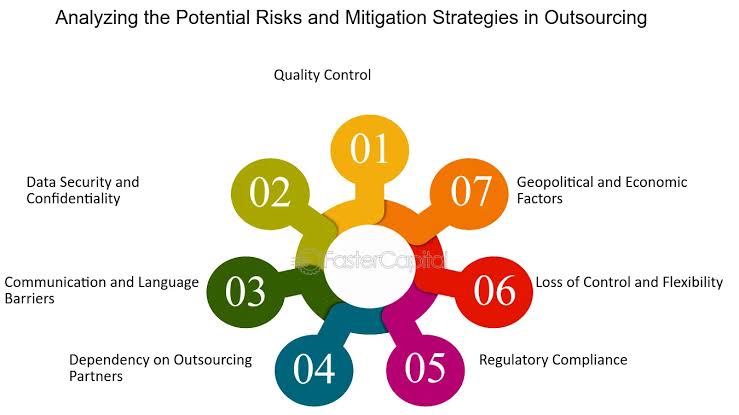
Published on 13th August, 2023

Author,
Projjal Dutta
Digital Project Manager – Having managed
over 500 outsourced IT projects predominantly
from the USA over the Years.
Overview
Outsourcing IT projects has become a crucial strategy for businesses aiming to utilize external expertise, reduce costs, and enhance competitiveness. However, this approach entails significant risks and challenges. This article delves into the primary risk factors associated with IT project outsourcing and provides insights into effective management strategies.
The Strategic Importance of IT Outsourcing
IT outsourcing has evolved into a strategic tool, enabling companies to focus on core functions while delegating non-core activities to external vendors. Rajini and Kaluarachchi (2016) highlight that businesses can leverage third-party expertise in areas such as disaster recovery, software development, and quality assurance. Achieving successful IT outsourcing requires careful consideration of strategic alignment, vendor selection, and robust risk management.

Key Risks in IT Project Outsourcing
- Reduced Control Over ProjectsOutsourcing can lead to diminished control over project execution. Fayazbakhsh et al. (2013) indicate that internal teams may feel disconnected, causing resistance and dissatisfaction. This was evident in IBM’s failed contract with Indiana. To address this, it is crucial to clearly define roles, establish governance structures, and maintain strong communication channels.
- High ExpectationsClients often have high expectations for outsourced projects, leading to potential dissatisfaction if not met. Nyameboame and Haddud (2017) emphasize the importance of setting realistic goals and clearly defining responsibilities. Proper planning, realistic goal-setting, and continuous communication are vital to align client and provider expectations.
- Communication ChallengesEffective communication can be challenging in outsourcing, especially with providers located in different geographical areas. Language barriers can result in misunderstandings, delays, and errors. Investing in communication tools and setting clear protocols can help mitigate these issues.
- Cultural DifferencesCultural differences can impact project success by affecting work practices, communication styles, and expectations. Managing these differences is crucial for effective collaboration. Cultural training and involving individuals familiar with both cultures can enhance project outcomes.
- Knowledge Transfer and Intellectual Property RisksKnowledge transfer involves risks related to intellectual property (IP) protection and potential loss of proprietary knowledge. Ensuring IP protection and confidentiality is essential. Comprehensive IP clauses in contracts and regular audits can safeguard proprietary information.
- Provider DependencyOutsourcing can create dependency on the provider, which becomes risky if the provider underperforms or the relationship deteriorates. Engaging multiple providers and establishing exit strategies can mitigate this risk.
- Project Management ChallengesManaging outsourced projects remotely can lead to delays, cost overruns, and quality issues. Implementing strong project management practices and conducting regular progress reviews can help maintain project control.
Effective Risk Mitigation Strategies in Outsourcing
- Thorough Risk AssessmentConducting a comprehensive risk assessment helps identify potential risks, evaluate their impact, and develop mitigation strategies. This proactive approach is essential for effective risk management.
- Clear Contractual AgreementsWell-defined contracts outlining scope, performance metrics, roles, and dispute resolution mechanisms are crucial. Clear contracts ensure mutual understanding and reduce conflicts.
- Effective Communication ToolsInvesting in communication tools and establishing clear protocols can help overcome language and cultural barriers.
- Cultural Integration InitiativesCultural integration programs, including training and team-building activities, foster mutual understanding and collaboration, improving project outcomes.
- Knowledge Management SystemsRobust knowledge management practices ensure effective transfer of critical information, maintaining project continuity and quality.
- Continuous Performance MonitoringRegular performance reviews and audits help identify issues early, allowing timely corrective actions and ensuring the project aligns with objectives.
Conclusion
IT project outsourcing offers significant benefits but also presents various risks that can impact project success. By understanding and addressing these risks through effective management strategies, businesses can maximize the advantages of outsourcing and drive sustainable growth. Comprehensive risk assessments, clear contracts, effective communication, cultural integration, knowledge management, and regular reviews are essential for successful outsourcing. Proactively managing these aspects enables businesses to navigate the complexities of outsourcing and achieve their strategic goals.






